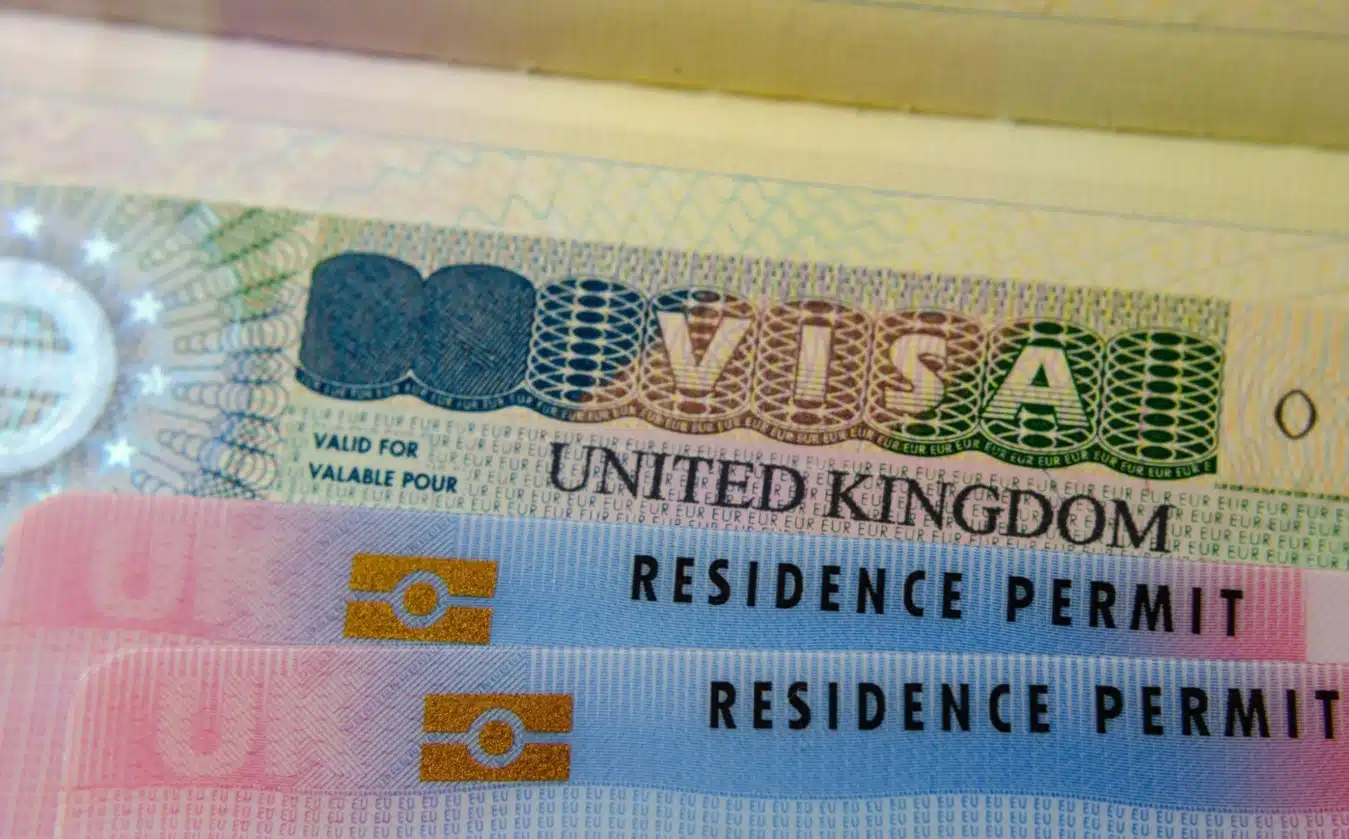Any overseas nationals wishing to enter the UK from the rest of the world need a visa to work, study, or visit if they intend to stay for over 90 days and are subject to UK immigration controls. With this process affecting every person, applicants can be denied a UK visa if they don’t meet specific criteria. If they are, they can face a lengthy UK visa refusal process.
So if you ask us, “Can I appeal a UK visa refusal?” the answer is, yes, you can. While it might not be possible to appeal against every UK visa refusal, you can if you feel it was inconsistent, unreasonable, or unsupported. This guide explains the reasons behind visa refusal and your appeal procedure against the decision.
Reasons for a UK visa refusal
There’s no guarantee the Home Office will accept your application, so any UK visa refusal can bring disappointment, frustration, and confusion over why and what to do next. Home Office visa caseworkers follow strict immigration rules when processing applications and will decide based on your suitability and eligibility for a UK visa. But they can refuse a visa application on more general grounds. Here are some common reasons for a UK visa refusal.
The purpose of your trip doesn’t match the visa category in your application
If you’re visiting the UK to study, mentioning you’re also looking for work at the same time will be a cause for refusal, as a work visa is a different category. Refusal based on an incorrect visa category can be distressing, so ensuring the purpose of your trip matches your chosen visa is essential.
The purpose of your trip doesn’t justify how long you applied to stay in the UK
Some UK visa applicants may be tempted to apply to stay in the UK for longer than necessary for the purpose of the visit. Doing so will raise Home Office suspicions over what you’ll be doing here and whether you can support yourself during your length of stay.
You haven’t provided some of the required documents
Every visa application needs supporting documents that you must supply. Everything you state in your application, from marital status to criminal record, medical record, and income, must be supported by the relevant documents.
There are errors in your application or translated documents
Incorrectly completing the UK visa application is a common mistake, and all information submitted must be correct and true. Application errors can mean refusal, even if it’s a genuine mistake. Any foreign language documents must also be translated into English and approved by a qualified translator.
Your application doesn’t meet the Home Office financial criteria
There are strict financial rules for issuing UK visas. The Home Office will check your monthly income and personal savings to ensure you can support yourself while you’re here. But having too much money can also raise suspicions, especially if you have no evidence of where it came from.
You’re a high-risk applicant
Even if your application is correct and you supply all relevant supporting documents, you may still be unsuitable for a visa if you’re a high-risk applicant. These reasons can include having unspent criminal convictions, having no means of income in your home country, being a security risk, or having breached immigration rules previously.
You’ve knowingly misrepresented yourself to mislead a caseworker
One of the biggest reasons for UK visa refusal is intentionally giving false information. By deliberately leaving out vital details, forging documents, or misrepresenting yourself, you will not get the chance to appeal the decision and could be banned from entering the UK for up to 10 years.
UK immigration rules are strict, and the application process can be complicated, leaving no margin for error. Home Office caseworkers will insist on every detail being correct and must be 100% sure that you are who you say you are. In the best-case scenario, an incorrect application will cost you time and money, but it could also lead to a ban on entering the UK for up to 10 years.
The procedure to appeal UK Visa refusal
If the Home Office has refused your UK visa application, it’s your right to appeal against the decision to refuse, though that right may be limited. Depending on the visa application type, you might receive a Right of Administrative Review, a full Right of Appeal, or No Right of Appeal. Here’s a breakdown of the decisions you can appeal against:
Full Right of Appeal
- The refusal of a Human Rights or Protection Claim and the revoking of protection status
- The refusal of visa and refusal of leave to remain applications
- The refusal of EEA family permit
- Deportation or removal of citizenship
No Right of Appeal
- The refusal of a Visitor Visa application (unless made as a family)
Right of Administrative Review
- The refusal of Points-Based System applications in Tiers 1, 2, 4, & 5
UK visa refusal only affects a small percentage of all applications. While it will feel disappointing and frustrating to be refused a visa, many decisions get overturned on appeal, so never give up hope.
Appealing UK visa refusals
Once you receive notice of your UK visa refusal, there are different ways you can appeal. If you choose to, that’s when you need the specialist skills of a UK Immigration Solicitor like Osbourne Pinner to tackle your appeals process to ensure the best outcome. And the first step is to prepare for your case extensively beforehand.
This preparation can include thoroughly assessing all documents, evidence, and the reasons for refusal. We’ll also draft statements and complete the procedural paperwork before lodging your appeal with the Immigration Tribunal and, later, the Home Office for review.
When you’re granted an appeal, we’ll use all the information available to us to make it successful and get your refusal decision overturned as quickly as possible. And an appeal that’s comprehensively prepared beforehand will often result in the tribunal overturning the original refusal decision.
If this appeal process isn’t successful, we’ll look further into preparing your case for judicial review or even making a new visa application.
UK visa refusal judicial review
You can also challenge your refusal decision through a judicial review process if you think the decision-making authority has acted outside its statutory powers or that the decision was unfair, unlawful, or unreasonable.
Judicial review is a two-step process. The first step is to make an application for permission to apply for judicial review, as the permission isn’t automatically granted. The second step is the review of the actual decision. The time limit to make an application for the judicial review’s permission must be within three months of the refusal of the work visa or student visa application.
New visa application following a refusal
Finally, depending on why your UK visa application was refused, it might be quicker and easier to carefully prepare a new application rather than appeal. This can often be the case if genuine errors were made on the original application.
There’s no time limit on how soon you can reapply, and you can do so as long as you still meet the immigration requirements and have the required supporting documents.
Pre-Action: Letter Before Claim
It’s a mandated practice to send a Pre-Action: Letter Before Claim to the Home Office before applying for a judicial review. The Pre-Action letter contains the matters of dispute, namely the failure or inaction of the Home Office to deal with your case reasonably. The objective of the letter is to try and avoid unnecessary legal procedures. It’s necessary to use the legal expertise of specialist UK immigration solicitors to draft the Pre-Action Letter for you.
UK Visa Refusal Appeal FAQs
How long do I have to appeal?
If you’re outside the UK, you’ll have 28 days to appeal after receiving your refusal notice. If you’re in the UK, you’ll have 14 days. If you’re being detained, you should appeal within 5 days.
How long will the appeal process take?
This will differ depending on the circumstances and visa type application. However, the appeal process could take between 6 and 12 months.
Do I need to attend my Immigration Tribunal?
You’ll receive a letter or email with your tribunal details. You may be required to attend in person or remotely via video call. Your chosen representative can attend on your behalf if you can’t attend.
What happens if my appeal is successful?
If your visa refusal appeal is successful, the judge of the tribunal will send the outcome to the relevant Home Office department, who will contact you. This process can take up to 4 weeks.
What happens if my appeal is unsuccessful?
You can make a further appeal to the Upper Tribunal. You should only do this if you believe the judge made an error of judgement on the law or if they didn’t follow the correct tribunal procedures. You can also apply for a different visa.
How can the solicitors at Osbourne Pinner help you with UK visa refusal appeals and judicial review?
The UK visa refusal appeal process and judicial review concerning a work visa, student visa, or any other visa can be confusing and overwhelming for any applicant. Osbourne Pinner has the best pool of UK immigration solicitors available to help you make a strong application in front of the Tribunal.
Our professional legal guidance is given to every applicant, helping them reduce unnecessary legal hassles and make a favourable decision. To do this, we provide support and advice for points-based visa routes, human rights visa applications, EEA visa applications appeal, and several other routes.
We also help clients overturn decisions in their favour before reaching a tribunal hearing. Contact us today for your immigration appeal and judicial review.





















